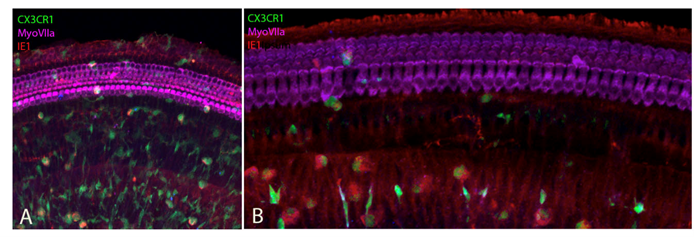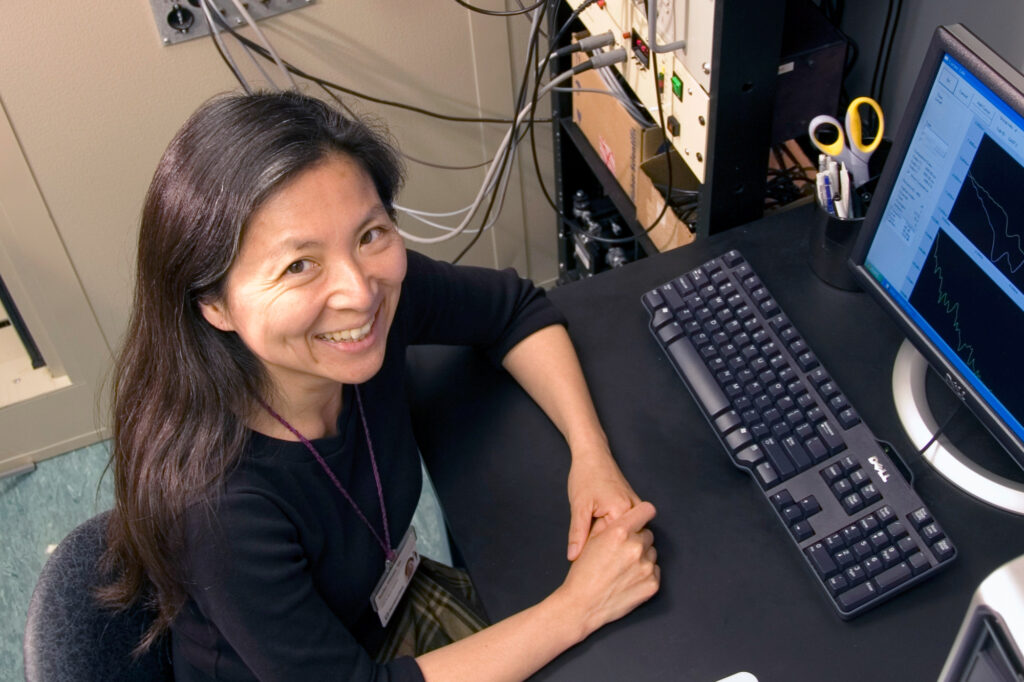A new study at Washington University School of Medicine hopes to shed some light on one of the most common causes of hearing loss in newborns – a viral infection known as cytomegalovirus or CMV.
Pediatric otolaryngologist and Principal Investigator Keiko Hirose, MD, knows well the risk of CMV infection in utero. Her lab studies the interaction of immune cells and damage to the inner ear.
CMV is a common virus that rarely causes problems in healthy individuals. Women who experience CMV infection during pregnancy can pass the virus to the fetus, and this can cause severe disease or no disease at all, and symptoms may not be obvious for months or years after birth. The most common of these late symptoms include hearing loss and developmental delay.
According to Hirose, timing of exposure to CMV is an important factor.
“The blood-labyrinth and blood-brain barriers protect the ear and brain from infections, but before birth and in young infants, these barriers are not fully developed,” she explained.
According to Hirose, little is known about the mechanisms that control the normal development of the blood-labyrinth barrier or what events could disrupt this normal development. It is also not understood how CMV affects the developing ear, which cells are infected, and which cells are damaged by the virus or by the host immune response to the virus. The study plans to address some of these unknowns by investigating the following areas:
- Explore the timing of the developing blood-labyrinth barrier in healthy newborn mice and in mice born with CMV infection
- Determine which cells are impacted by the virus and if that cell death contributes to hearing loss
- Explore the role of interferons – proteins that help the immune system fight infections – in CMV-induced hearing loss

Collaborators on the project include University of Alabama-Birmingham pediatric infectious disease specialist William Britt, MD; WashU Associate Professor of Otolaryngology Mark Rutherford, PhD; and Michael Hoa, MD, a specialist in auditory development and restoration at NIH.
The goal is to improve our understanding of how the immune system works in the inner ear, what immune elements are critical for preventing and eliminating infections, and how immune function might contribute to inner ear damage and hearing loss.
To learn more about this work, please contact Keiko Hirose, MD.
